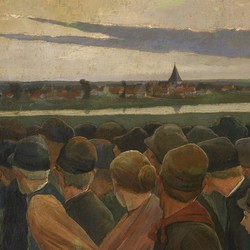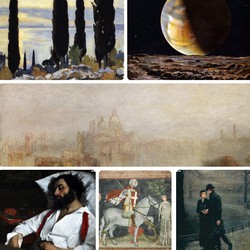- Details

Last week we had an Italienisches Liederbuch in Barcelona, and this must be celebrated. Above all, we should celebrate the fact that we can hear Hugo Wolfs collection relatively often and with naturalness. How will it be celebrated? Listening to a song, of course.
- Details

Johannes Brahms was a great admirer of art, especially painting and drawing. This will give me the chance to write (at least) three articles about three different artists who inspired him to write a song. This article, the first one, talks about Brahms and Franz Kugler, who never met.
- Details

I could have borrowed the title of this article from one of Charles Dickens's works, Great Expectations, because 1816 for Franz Schubert was a year of hopes and expectations. However, his projects did not come out as he had hoped, and the subsequent disappointments ended up causing a change in his life.
- Details

In 1874, the catholicos Gevorg IV founded a seminary in Etchmiadzin, in the cathedral premises, which was the religious centre of the Armenians. The head of the Armenian church established that every year twenty orphans who stood out for their intelligence and willingness to study were chosen to receive in the seminary the education that their situation did not [...]
- Details

My dearest, this week we are blowing thirteen candles, for the thirteen years that have passed since I published the first entry of Liederabend on February 2, 2012. Thank you for being there, for reading, and for commenting. I'm happy to keep learning and sharing, knowing that you're on the other side of the screen.












